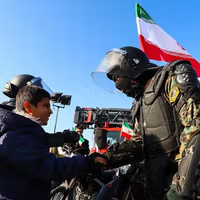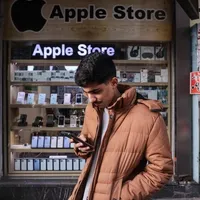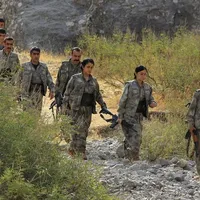The August 31 appointment of Ali Bagheri Kani carries implications for factional rivalries, the role of Iran’s powerful clerical families and the looming question of succession to supreme leader Ali Khamenei.
Some observers, including former parliament security committee chair Heshmatollah Falahatpisheh, see the decision as an effort to placate hardliners—a view echoed by the conservative outlet Nameh News.
Others, such as commentators on Khabar Online, a platform close to Larijani, argue it reflects a coordinated bid by influential clerical clans to consolidate power.
Both outlets avoided linking the maneuver to 86-year-old Khamenei’s eventual exit, though many analysts consider succession the unavoidable backdrop.
‘A silent figure’
Bagheri Kani is best remembered as deputy to ultraconservative Saeed Jalili at the SNSC in the late 2000s, when the pair became known for their hardline stance in nuclear talks.
US negotiator William Burns, in his book The Back Channel: American Diplomacy in a Disordered World, described Jalili as a battle-scarred ideologue who had “learned the hard way in the trenches (of the Iran-Iraq war) that Iran could trust no one.”
Bagheri, Burns recalled, was “a silent figure” — a presence, but not yet a voice. The duo took over nuclear talks after Larijani stepped down following disputes with Mahmoud Ahmadinejad’s administration.
Now Larijani, Bagheri and Jalili must work together again, as Jalili also sits on the SNSC as Khamenei’s representative.
Tensions are already evident: last week, hardliners in the Majles pressed Larijani to explain why he ignored legislation demanding Iran’s withdrawal from the Non-Proliferation Treaty.
Revolutionary or not?
Bagheri himself has shown signs of shifting.
In 2024, the hardline daily Sobh-e Now noted that he had grown critical of those “disguised as defenders of revolutionary values” who cast negotiations as betrayal.
Etemad Daily highlighted the contrast with Jalili, citing Khamenei’s rebuke of Jalili for holding unauthorized bilateral talks with Burns.
Bagheri, by contrast, said he would never conduct technical negotiations with US experts but still defended diplomacy as a vital tool: “Those who attack negotiations as counter-revolutionary behavior wish to rob the Islamic Republic of negotiations as an effective tool. Politics is the arena of beliefs, rationality and intelligence.”
Criticism from the hardline Paydari Party's deputies has reinforced the perception that Bagheri has moved away from his earlier ultraconservative line.
His remarks on Europe also suggested pragmatism: “The potentials of the East do not mean we should ignore other potentials. Europe has never been on our blacklist. We will welcome their cooperation as much as they wish to play a role in Iran’s development.”
Establishment and succession
The appointment also underscores the weight of Iran’s clerical dynasties.
Bagheri is part of the powerful Kani clan, son of former Expediency Council member Mohammad Bagher Bagheri Kani, with a brother married into Khamenei’s family.
Larijani, meanwhile, belongs to another dynasty: the sons of the late Ayatollah Mirza Hashem Larijani, with brothers tied by marriage to Grand Ayatollah Vahid Khorasani and Ayatollah Morteza Motahari.
These families, wealthy and deeply embedded in clerical life, form a dominant bloc within the Islamic Republic.
Against this backdrop, Larijani’s choice to elevate Bagheri looks less like conciliation and more like strategic positioning in a system bracing for transition.
With succession looming and clerical clans maneuvering for influence, even a deputy appointment at the SNSC reverberates beyond the bureaucracy—into the struggle over who will shape the post-Khamenei order.

















